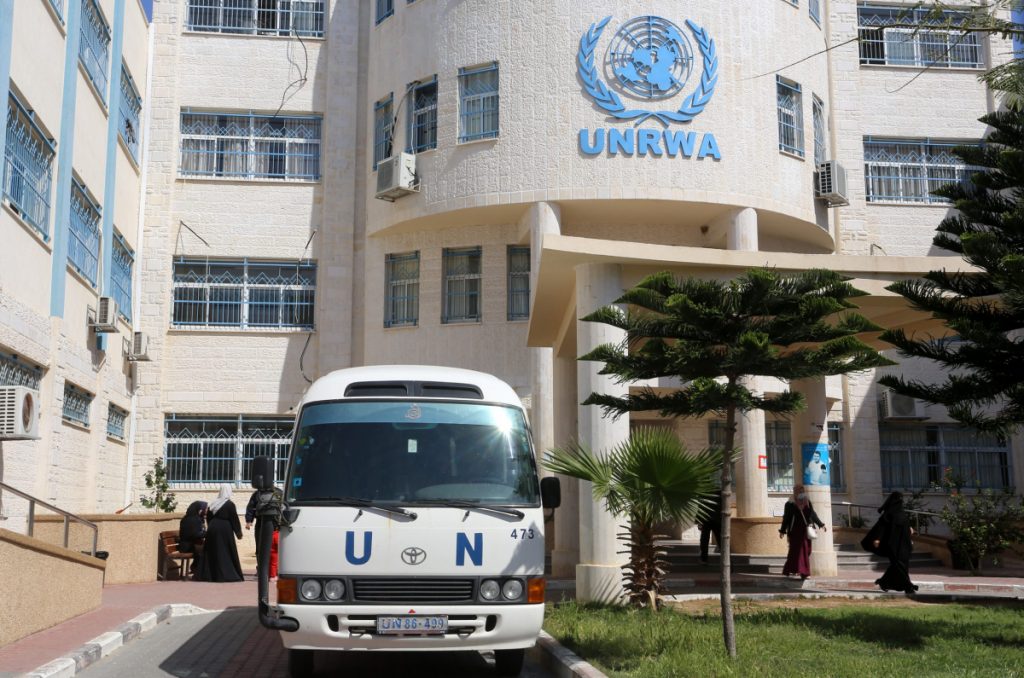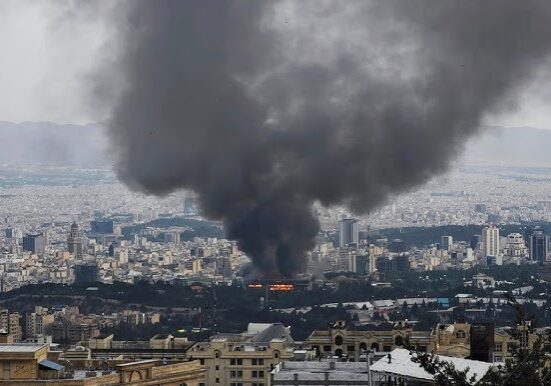Australia/Israel Review
A Biden error on refugees
Aug 4, 2022 | Asaf Romirowsky, Jonathan Schanzer

US President Joe Biden earned deserved modest praise for his visit to Israel and Saudi Arabia in mid-July, restoring confidence in core Middle East alliances. But the President made at least one major misstep: He pledged US$201 million (A$296 million) to the corrupt and bloated United Nations Relief and Works Agency (UNRWA), a step back into the failed policies of the past on a trip dedicated to continuing the forward progress made in the region in recent years.
Biden’s move was wildly out of step with the current global refugee crisis, sparked by Russia’s brutal invasion of Ukraine in February of this year. Nearly half a year later, the epicentre of the world’s refugee crisis today is unquestionably in Europe. UNRWA, by contrast, serves only a small segment of the Middle East. In fact, UNRWA is the only agency dedicated to serving one specific refugee population. For seven decades, the Palestinians have received special treatment, while the UN High Commissioner for Refugees is tasked with handling every other refugee problem on the planet.
Worse, UNRWA has adopted the unjustifiable policy of recognising the descendants of the original refugees from the 1948-1949 war with Israel. This means that the agency’s roster of dependents continues to grow each year, even as the number of original refugees continues to shrink because of their ageing population. In other words, UNRWA has ensured that its services will always be needed; the agency that originally had no more than 715,000 refugees from the first Arab-Israeli war now has 7 million clients. Under the current policy, that list will only grow.
Biden’s support for UNRWA is also odd given that the agency has been under fire in recent years owing to credible allegations of corruption, mismanagement and extremism, to name a few. A recent study on agency textbooks validated again the shocking extent of the antisemitism found in the materials that Palestinian students are required to learn.
It gets worse. The agency has a bloated roster of employees. Its payroll is a whopping 30,000 or more. And UNRWA has been increasingly infiltrated by members of radical groups, primarily the Iran-backed Hamas terrorist group that runs the Gaza Strip. Terrorists are believed to hold jobs as teachers and administrators within the agency’s bureaucracy, thanks to poor vetting and oversight procedures. Hamas has cynically wielded UNRWA facilities as shields to protect its underground commando tunnels that were deliberately built beneath or alongside the agency’s buildings. Hamas and other militant groups have a history of firing unguided rockets at Israel from sites adjacent to UNRWA buildings for similar reasons. It’s a practice commonly known as “human shields”, which is recognised as a war crime in the United States and the UN, among others.
Supporting an organisation so deeply beset with problems is a glaring misallocation of American and United Nations resources at any time. But it’s especially egregious when those resources are sorely needed elsewhere as the refugee crisis in Ukraine spirals out of control.
By one conservative estimate, 7 million Ukrainians are internally displaced as a result of the war. No fewer than 5 million refugees have already fled Ukraine. The UN predicts a total of approximately 8.35 million refugees by the end of this year. According to one British House of Commons report on Ukraine, “29% of Ukraine’s 44 million population (12.8 million people) have been forcibly displaced within the country or beyond it. The UN Refugee Agency (UNHCR) said it is the fastest growing refugee crisis since World War II.”
Poland, Moldova, Hungary, and Slovakia are among the front-line states in this crisis. They will need significant international assistance to absorb the massive numbers of refugees streaming across their borders. The President’s decision to throw more money at UNRWA is downright bizarre in this context.
A responsible policy would be to divert some of these resources, if not most of them, to the escalating refugee crisis gripping Europe.
Throwing good money after bad at the UN is nothing new, of course. The massive refugee crisis stemming from the civil war in Syria should have prompted a shift in policy. The same goes for the internal displacement of Yemenis from that country’s civil war, prompted primarily by the Iran-backed Houthi terrorist groups. But those crises may soon pale in comparison to the misery from the war in Ukraine.
With an acute refugee crisis already underway, coupled with a food scarcity predicted to hit next year, the time has come for a shift in global refugee policies. UNRWA sits at the top of the list of agencies that divert funds from needy refugees worldwide.
Donors from the Arab world have reportedly curtailed support to UNRWA in recent years, even before the Ukraine crisis. So have Britain and Austria. The result has been a scramble at the UN to make up the shortfall – without giving thought to why there’s a shortfall in the first place. In fact, the message is unmistakable: The world’s confidence in this agency has fallen.
For now, the damage is done. Biden is not likely to reverse course. In fact, his allocation of funds to UNRWA looks like he is doubling down on this controversial policy. His own State Department recently hired Elizabeth Campbell, formerly UNRWA’s Washington lobbyist who notoriously helped disseminate bigoted education lessons to Palestinians via agency textbooks.
The Russian invasion of Ukraine has already highlighted what the United Nations can’t do: It has little to deter Vladimir Putin’s war machine. But the UN can and should continue to coordinate refugee relief; it’s an area in which it has demonstrated relative competence. As the Ukrainian refugee crisis worsens, the Biden Administration should conduct a review of its refugee assistance policies, with an eye toward optimising them. Congress can play an important role in spurring this oversight. Better efficiency is urgently needed. So is purging hate and vitriol. This should not inhibit assistance to the refugees who need America’s help the most. Neither should it mean an end to assistance programs that support Palestinians. But it should prompt a long-overdue review of the efficacy of the refugee initiatives America supports, with the goal of much-needed change.
Dr. Asaf Romirowsky is Executive Director of Scholars for Peace in the Middle East. Dr. Jonathan Schanzer is Senior Vice President for Research at the Foundation for Defense of Democracies. The article originally appeared in the Washington Examiner. Reprinted by permission of the authors, all rights reserved.
Tags: Palestinians, United Nations, United States, UNRWA






